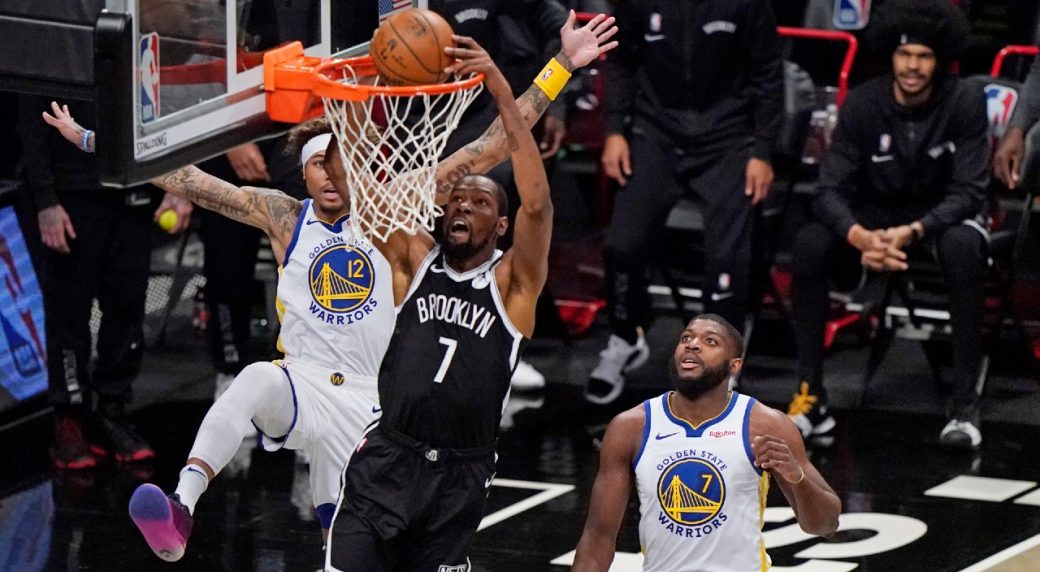- The Toronto Raptors’ Jontay Porter received a lifetime ban from the NBA over a betting scandal.
- If you think that’s a crisis for the NBA, think again: The NBA is happy to make an example of Porter.
- The NBA — and lots of other institutions — really wants sports betting to thrive. This move is supposed to give bettors confidence to keep betting.
How dumb do you have to be to throw away an NBA career in a betting scandal?
Or, if you don’t like that framing, try this: How much trouble do you have to be in — financial or otherwise — to throw away an NBA career in a betting scandal?
I have no idea. I can’t fathom what led the Toronto Raptors’ Jontay Porter to allegedly 1) conspire with bettors about a game he was playing in and 2) bet on NBA games, including betting against his own team.
But it’s easy to understand why Porter’s case resulted in a lifetime ban from the NBA, where he had reportedly earned at least $2.3 million in three years.
In fact, you can argue that Porter’s case is good for the NBA: It allows the league to set a clear-as-day bright line for any other players dumb or desperate enough to do this stuff. And, crucially, it allows everyone else to believe that Porter’s case is an anomaly and that they should get right back to betting on NBA games.
And the NBA, like every other pro sports league, really wants people betting on games. It believes sports betting — mostly illegal in the US until 2018 and now a booming business — is important for its future growth.
Related story
You can debate the accuracy of that theory — yes, people are betting tons of money on sports now ($120 billion in the US last year alone). But is that a narrow-but-deep niche of bettors or a wide swath of people who occasionally drop a couple dollars on a game? And you can also debate the morality of the theory — even if gambling is something people like to do, should we encourage it?
But the NBA and the rest of big-time sports — along with a sports media ecosystem that expects sports betting to generate huge payouts for TV networks, publishers, podcasts, and many other outlets — is all-in on betting now. It seems unlikely it will ever go back.
You may see some tweaks in the future to make it even less likely to see future Porters — even though sports betting scandals keep cropping up in all kinds of sports. NBA boss Adam Silver, in a statement about Porter’s ban, referenced “important issues about the sufficiency of the regulatory framework currently in place, including the types of bets offered on our games and players.”
Silver is presumably talking about “prop bets,” which move beyond basic who’s going to win/by how much bets even non-betters may have heard of, and to much more narrowly focused bets, like how many points an individual player might score — or even how long the national anthem might last at a Super Bowl.
Sportsbooks often push props because they can entice betters with big payouts. (The entire plot of “Uncut Gems” hinges on the preposterous, low-odds, high-return prop bets Adam Sandler’s character makes.) But you can see the obvious downside there, especially with prop bets focused on individual players — it gives players the ability to directly affect the results.
And that’s reportedly happened with Porter: The NBA says a bettor placed an $80,000 prop bet that could have won $1.1 million wagering that Porter would have a bad game — and then Porter took himself out of that game after a few minutes, saying he was sick.
But these are details: What the NBA can’t — or at least thinks it can’t — allow is to give lawmakers a chance to rethink their stance on sports betting and make it illegal again. There’s simply too much money at stake.
Which made Porter’s fate an easy call.

















